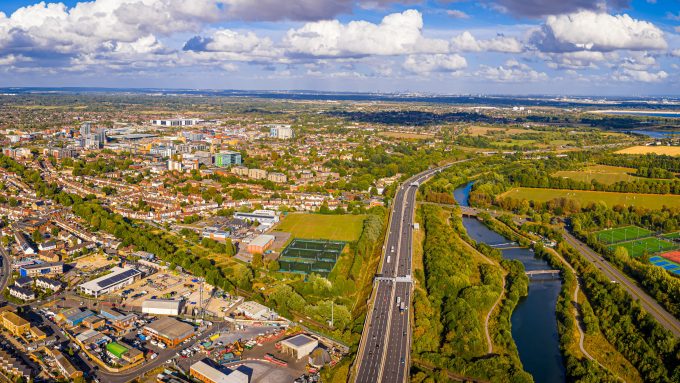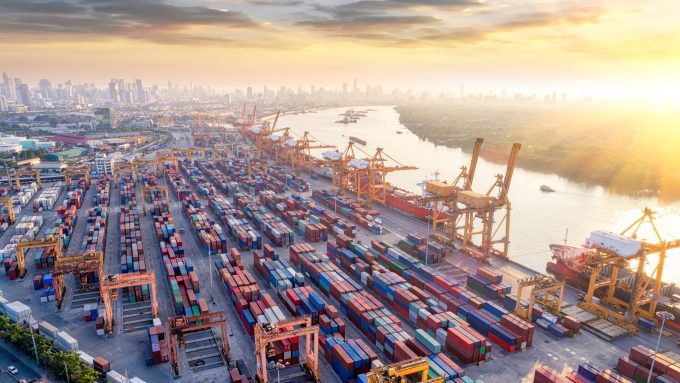
Local Government’s Road To Net Zero

Our mission at Connected Places Catapult is to drive UK leadership to meet Net Zero targets, promoting sustained economic growth and wellbeing through integrated, efficient and sustainable technologies with a seamless approach. At Connected Places Catapult, we use our market-neutral position and domain expertise in the user-led and built-environment research to accelerate the UK’s transition to Net Zero emissions by, or even before, 2050.
The Climate Emergency
With the looming climate crisis, lack of international agreements and inefficient government legislative responses, local authorities are seen as the last bastion of leaders responding to climate change. Across the UK, local authorities of all political persuasions have consulted with their communities and declared climate & ecological emergencies. In doing so, the government and its scientists admit the severity of our environmental crisis and that the measures taken up to this point are not enough. Although these declarations do not, in themselves, bind these governing bodies to any statutory duties, they do show intentions to iterate strategies and action plans to tackle global warming. The first declaration was made in December 2016 by the City of Darebin, a council located in Melbourne’s north. Since then, over 1,400 local governments in 28 countries have followed suit.
If we look at detailed numbers in the UK, 298 out of 408 local councils have declared a climate emergency, with the South East and North West regions having the highest percentage of declarations per councils (96 and 100% respectively), while Northern Ireland, Scotland, East Midlands and East regions falls behind (see figure 1 and 2).
In terms of time scale in the UK (see figure 3), the earliest declaration was made by the City of Bristol (SW) on November 13th, 2018, quickly followed by Trafford (NW) on November 28th. The highest amount of declarations was made during the month of July 2019, where over a 100 declarations came out, This represents a third of the total declarations made in the UK, and may be explained by the Extinction Rebellion protest in London, held the preceding April, and the subsequent declaration of a climate emergency by Westminster in May 2019.
2020 has only seen 14 declarations so far, with the last one made by Scottish Borders Council (Scotland) on September 25th, 2020. This is a dramatic drop in the pace and momentum of these declarations. The current ongoing COVID-19 pandemic could partly explain this sudden drop in number. Regardless, while managing ongoing impacts of the global pandemic, councils are struggling to keep up with their climate emergency targets, policies and plans.
In the UK, councils that make climate emergency declarations align themselves with national legislation and demonstrate an intention to achieve a net-zero position for all greenhouse gas emissions at least by 2050 (see figure 4). While such a declaration (even with a target date) does not automatically translate into a net-zero strategy per se, a large number of councils (67% and growing) in the UK are now devising local measures and preparing plans and policies to reach net-zero carbon emissions.
What is Net Zero
The meaning of Net Zero has varied through various government consultations and commitments, as well as in general usage, but the overall, agreed definition is that ‘Net zero’ refers to achieving an overall balance between emissions produced and emissions taken out of the atmosphere.
There are many sources of carbon emissions and potential methods for recapture, but what is clear when looking across councils’ various Net Zero plans, is that they all focus on four main areas (see figure 5):
1. decarbonizing the electricity grid,
2. optimizing energy and heating efficiency in buildings,
3. enabling low carbon mobility, and
4. improving waste management
These interventions are often highlighted to be the most impactful for cities in terms of carbon reduction and return on investment, as well as falling within the legislative and regulatory control of local government. Local interventions in industries of cargo transportation, aviation, agriculture and/or industrial processes are usually ignored, although they are also major contributors to carbon emissions. There are a multitude of reasons as to why:
- First, the management of these industries usually do not directly fall under the regulatory and legislative responsibility of councils but are regulated instead by national and regional legislation.
- Second, these industries include a complex network of stakeholders, lobbyists and interest groups making reform much more difficult and slow.
- Lastly, more often than not, councils lack the means and tools to measure, monitor and deal with the carbon emitted by these sectors. This is partly due to the lack of accessible and standardised data and because of the difficulty to assess cross-boundary carbon emissions, i.e. the product, process or land used within these industries are usually not self-contained within one specific jurisdiction.
Our Vision & Approach to Net Zero
Our mission at Connected Places Catapult is to drive UK leadership to meet Net Zero targets, promoting sustained economic growth and wellbeing through integrated, efficient and sustainable technologies with a seamless approach. At Connected Places Catapult, we use our market-neutral position and domain expertise in the user-led and built-environment research to accelerate the UK’s transition to Net Zero emissions by, or even before, 2050. We combine a human-centred design approach, data science and technical domain knowledge to be problem-led and human-centric to de-risk innovation and lower barriers to adoption of new innovations and technologies towards the Net Zero journey. Today, we are currently partnering with Energy Systems Catapult (ESC) and the City of Glasgow (Scotland, UK), where we aim to:
- Map Glasgow’s policies, plans and initiatives relevant to carbon emissions.
- Review and synthesize these plans (e.g. transport, energy use, development)
- Undertake a gap analysis and identify potential obstacles.
- Map out relevant stakeholders involved with this transition strategy and devise recommendations to maximise collaboration and partnerships across sectors, level of government and legislative boundaries.
- Provide Glasgow with a robust plan and an effective approach to support and drive the achievement of Net Zero across energy, land-use and transport planning.
- And launch this exemplary approach as part of the COP26 preparatory events will highlight Glasgow as a pioneer and leader of Net Zero planning.
All the above will allow Glasgow City Council to make sure their policy landscape, procurement strategy and standards are all correctly set up to reach their net-zero target by 2030.
These actions above are easy steps for any local governments to address carbon neutrality within their legislative boundaries. Although we know the resource strain and piling responsibility local governments have, we believe councils must act and play a central role in tackling all sources of carbon emissions in the UK. What can they do to champion and advance net-zero? What is the logical road map? We invite councils and partners to email us if they want to find out more about our work and/or ways they could themselves advance carbon neutrality.





